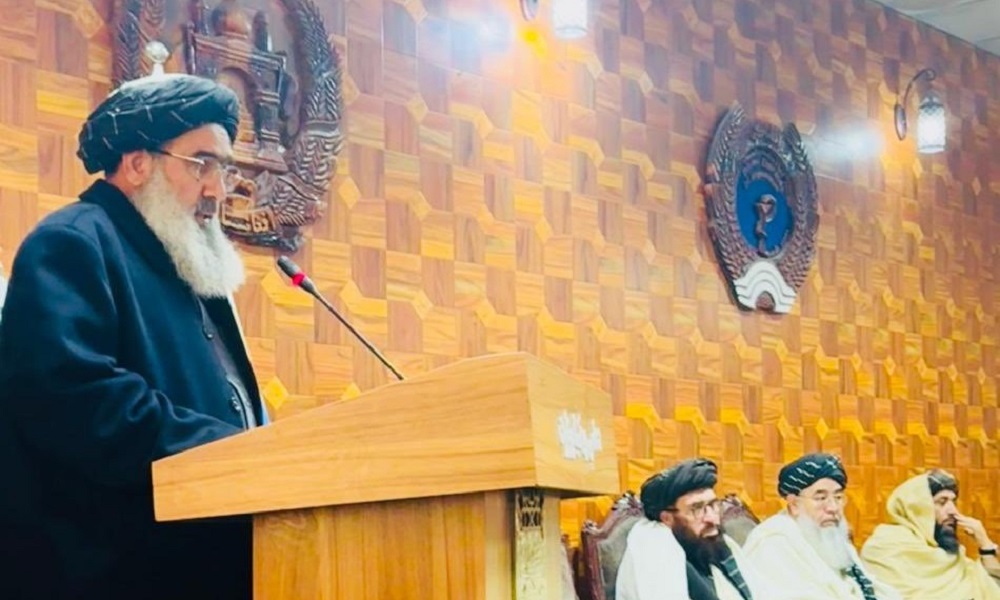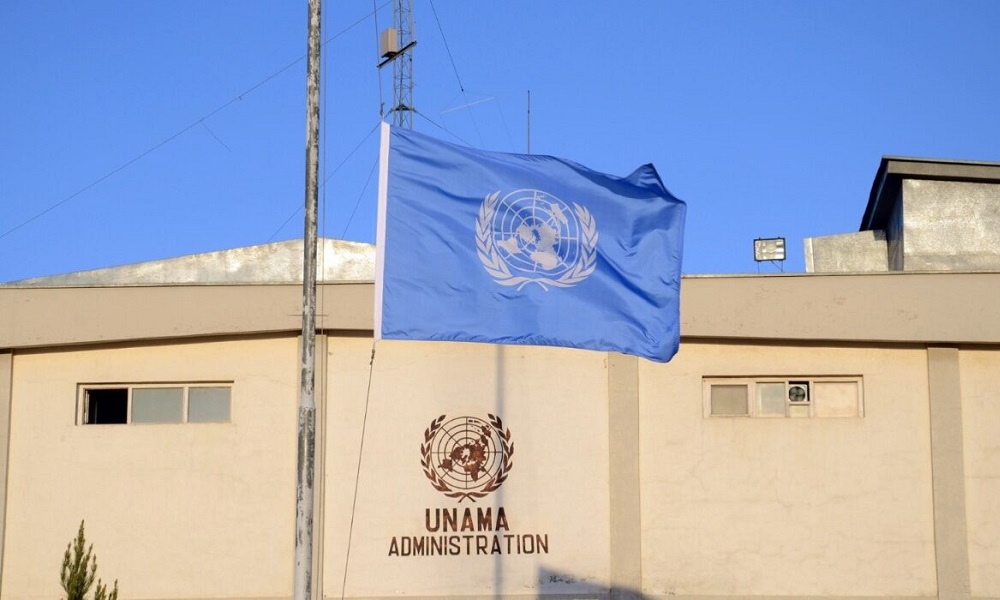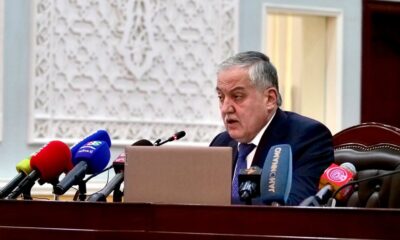Latest News
Afghans urge IEA to preserve historical sites

Afghans have called on the Islamic Emirate of Afghanistan (IEA) to help preserve the country’s rich heritage of historical sites which they say could attract thousands of foreign tourists a year.
Dozens of historical sites are dotted around the country, including the famous Bamiyan Buddha niches. However, many of these have fallen into disrepair after years of conflict.
One local tourist, who was visiting Bamiyan, said he decided to visit the province following the take over of the IEA and the improved security situation.
“We came to see the area where the statues of Bamiyan are located, as a historical place. Security in the country has improved since the Taliban (IEA) came to power. People can easily travel from one place to another which was not the case before,” said Amanullah Mahmoodzai.
Another local tourist visiting the Buddhas was Hussainullah who also urged the IEA to restore sites. He said the local Bamiyan residents would then benefit from an increase in tourism.
“This is a historical place worth visiting. If it is repaired, more tourists will come and help the people of the area,” he said.
Another wellknown site is the UNESCO World Heritage listed minaret of Jam in Ghor province.
The 65-metre high minaret was built around 1190 entirely of baked bricks and is famous for its intricate brick, stucco and glazed tile decoration.
Since 2002, the minaret has remained on the list of World Heritage in Danger as it is under serious threat of erosion and for the past seven years, experts have warned that it is in imminent danger of collapse.
But recently, the IEA assigned a team of 30 people to safeguard the structure.
After the IEA’s takeover, UNESCO Director-General Audrey Azoulay issued a statement calling “for the preservation of Afghanistan’s cultural heritage in its diversity, in full respect of international law, and for taking all necessary precautions to spare and protect cultural heritage from damage and looting.”
Afghanistan’s cultural heritage is vast as for millennia, it was a crossroads of many civilisations that left a remarkable legacy, from the Medes to the Mongols, Mughals and Durrani, to the kingdom and the long period of conflict that started in 1979.
Latest News
Ministries of Public Health and Higher Education sign cooperation agreement

The Ministry of Public Health announced on Tuesday it has signed a cooperation agreement with the Ministry of Higher Education aimed at expanding scientific, research, educational, and technical cooperation.
At the signing ceremony held in Kabul, Noor Jalal Jalali, Minister of Public Health, said that the agreement would lead to significant improvements in the capacity-building of students and doctors, ensure that research is conducted based on evidence, and enable the collection of accurate data.
Meanwhile, Neda Mohammad Nadeem, Minister of Higher Education, described the agreement as beneficial to the public and to both institutions, stressing the need to train individuals at universities who can contribute to social development and make the country self-sufficient in the public health sector.
Latest News
UNAMA holds new round of Working Group meetings on counter-narcotics and private sector

The United Nations Assistance Mission in Afghanistan (UNAMA) has convened a new round of Doha Process Working Group meetings focusing on counter-narcotics and private sector development.
The meetings, held in Kabul on February 3 and 9, brought together representatives of UN member states and international organizations, officials of the Islamic Emirate, and subject-matter experts.
According to UNAMA, discussions in the counter-narcotics working group centered on efforts by Islamic Emirate authorities and the international community to support alternative livelihoods for Afghans previously dependent on poppy cultivation and the illicit opium trade. Participants also reviewed drug-use prevention and treatment initiatives, as well as law-enforcement measures to curb narcotics production and trafficking.
The private sector working group focused on job creation and entrepreneurship, with particular attention to women’s participation in the private sector, market integration, access to finance, and the development of private banking and financial infrastructure.
UNAMA said both working groups identified priority areas for enhanced engagement and explored more effective and sustainable approaches to supporting Afghan men and women. Participants also examined the linkages between the two areas, noting that private sector development is a key source of livelihoods, while counter-narcotics efforts contribute to Afghanistan’s economic and social stability.
The working groups were established following the third Meeting of Special Envoys held in Doha, Qatar, in June and July 2024, in line with recommendations of the Independent Assessment endorsed by the UN Security Council. The process aims to promote more coherent, coordinated, and structured engagement with Afghanistan’s de facto authorities for the benefit of the Afghan people.
UNAMA added that stakeholders engage in the working groups on an ongoing basis, with full-format meetings convened periodically. Since their establishment, the groups have improved information-sharing, helped mobilize additional resources, and facilitated expert exchanges to strengthen support for the Afghan people.
Latest News
Economic Commission approves national policy for development of agriculture

At a regular meeting of the Economic Commission chaired by Mullah Abdul Ghani Baradar, Deputy Prime Minister for Economic Affairs, the National Policy for the Development of the Agriculture and Livestock Sector was approved.
According to a statement from the deputy PM’s office, the key objectives of the policy include the mechanization of the agriculture and livestock sector; development of agricultural, irrigation, and livestock research and extension systems; management of irrigation systems; support for investment in these sectors; and ensuring public access to high-quality agricultural and animal products.
During the same meeting, the development plan for the fish farming sector was also approved.
Under this plan, through private sector investment, 7,700 small, medium, and large fish production and farming facilities will be established on 6,500 hectares of land in various parts of the country.
The statement added that the implementation of this plan will create direct employment opportunities for 50,000 people and indirect employment for 250,000 others.
-

 Latest News3 days ago
Latest News3 days agoAfghanistan to grant one- to ten-year residency to foreign investors
-

 Sport5 days ago
Sport5 days agoIndonesia shock Japan to reach historic AFC Futsal Asian Cup final
-

 Sport3 days ago
Sport3 days agoIran clinch AFC Futsal Asian Cup 2026 in penalty shootout thriller
-

 Latest News4 days ago
Latest News4 days agoAfghanistan says Pakistan is shifting blame for its own security failures
-

 International Sports2 days ago
International Sports2 days agoWinter Olympics gain momentum as medal table takes shape
-

 Latest News3 days ago
Latest News3 days agoTraffic police receive new cars
-

 Regional4 days ago
Regional4 days agoIran’s FM calls Oman-mediated talks with US ‘good start’
-

 Latest News2 days ago
Latest News2 days agoTajik foreign minister urges international community to help Afghanistan address its challenges
























